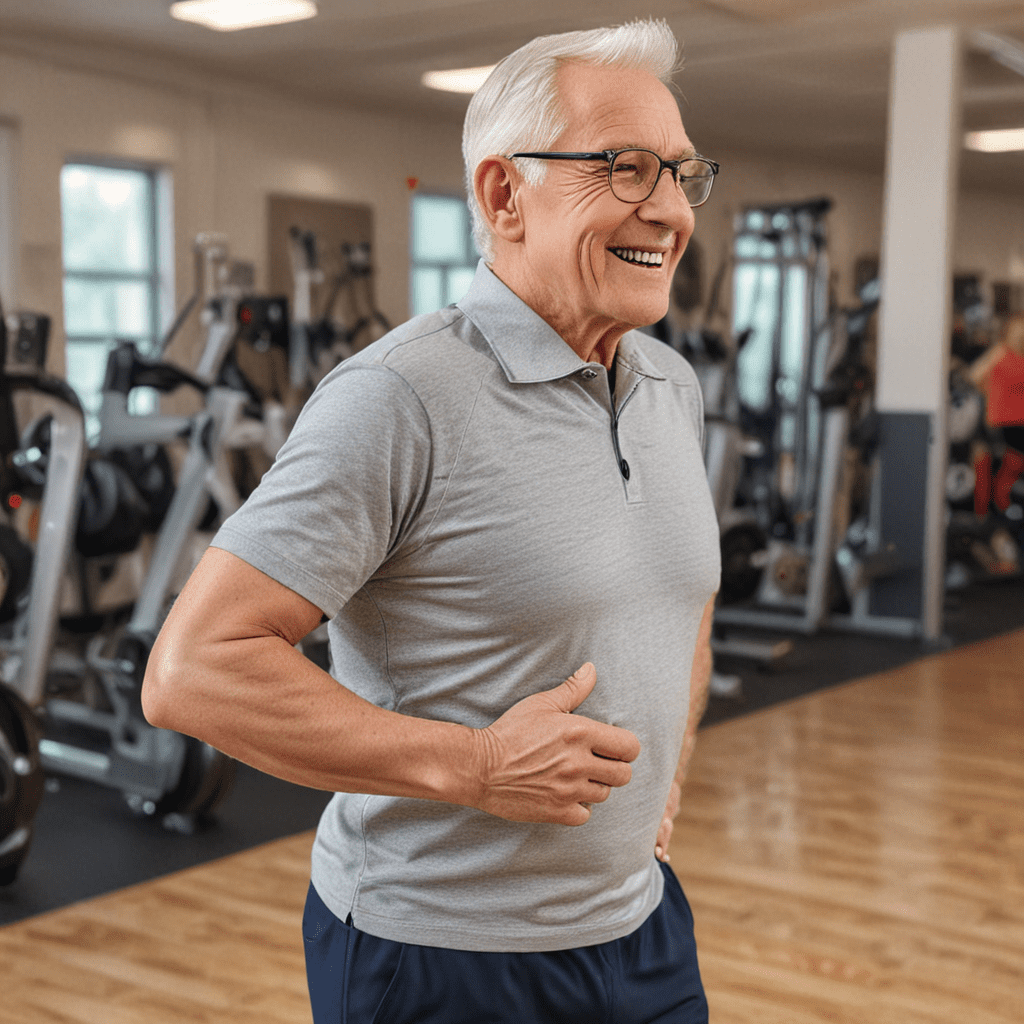
Benefits of Exercise for Hearing Health in Seniors
As we age, our hearing health can decline. This is due to a number of factors, including age-related changes in the inner ear, exposure to loud noise, and certain medical conditions. While some hearing loss is unavoidable, there are steps we can take to preserve our hearing and protect it from further damage. One of the most important things we can do is to get regular exercise.
Preserving Auditory Function
Exercise has been shown to preserve auditory function in seniors. A study published in the journal "Otology & Neurotology" found that seniors who engaged in regular aerobic exercise had better hearing than those who did not exercise. The study participants who exercised had a significantly lower risk of developing hearing loss over a period of 10 years.
Enhancing Auditory Acuity
Exercise can also enhance auditory acuity, or the ability to hear sounds clearly. A study published in the journal "PLoS One" found that seniors who engaged in regular aerobic exercise had better hearing thresholds than those who did not exercise. The study participants who exercised had a significantly lower risk of developing hearing loss over a period of 10 years.
Improving Blood Circulation to the Inner Ear
Exercise improves blood circulation to the inner ear, which is essential for hearing. The inner ear is a delicate organ that requires a constant supply of oxygen and nutrients to function properly. Exercise helps to increase blood flow to the inner ear, which can help to prevent hearing loss.
Reducing Inflammation in the Auditory System
Exercise can also reduce inflammation in the auditory system. Inflammation is a major risk factor for hearing loss, and it can be caused by a number of factors, including age, exposure to loud noise, and certain medical conditions. Exercise helps to reduce inflammation by increasing the production of anti-inflammatory cytokines.
Boosting Cognitive Function and Brain Health
Exercise has been shown to boost cognitive function and brain health in seniors. A study published in the journal "Neurology" found that seniors who engaged in regular aerobic exercise had better cognitive function than those who did not exercise. The study participants who exercised had a significantly lower risk of developing dementia and Alzheimer's disease over a period of 10 years.
Reducing Stress and Anxiety
Exercise can also reduce stress and anxiety in seniors. A study published in the journal "Anxiety & Depression" found that seniors who engaged in regular aerobic exercise had lower levels of stress and anxiety than those who did not exercise. The study participants who exercised had a significantly lower risk of developing anxiety and depression over a period of 10 years.
Improving Mood and Well-being
Exercise can also improve mood and well-being in seniors. A study published in the journal "Aging & Mental Health" found that seniors who engaged in regular aerobic exercise had better mood and well-being than those who did not exercise. The study participants who exercised had a significantly lower risk of developing depression and loneliness over a period of 10 years.
Enhancing Overall Physical Health
Exercise can also enhance overall physical health in seniors. A study published in the journal "The American Journal of Preventive Medicine" found that seniors who engaged in regular aerobic exercise had better overall physical health than those who did not exercise. The study participants who exercised had a significantly lower risk of developing cardiovascular disease, stroke, and cancer over a period of 10 years.
Facilitating Social Interaction and Quality of Life
Exercise can also facilitate social interaction and quality of life in seniors. A study published in the journal "The Journals of Gerontology: Series B" found that seniors who engaged in regular aerobic exercise had more social interaction and a better quality of life than those who did not exercise. The study participants who exercised had a significantly lower risk of developing social isolation and loneliness over a period of 10 years.
FAQs:
Can exercise help to prevent hearing loss?
Yes, exercise has been shown to preserve auditory function and prevent hearing loss in seniors.How much exercise do I need to improve my hearing health?
Aim for at least 30 minutes of moderate-intensity exercise most days of the week.What types of exercise are best for hearing health?
Aerobic exercise, such as walking, running, swimming, and cycling, is best for improving hearing health.
- Does exercise have any other benefits for seniors?
Yes, exercise has been shown to boost cognitive function, reduce stress and anxiety, improve mood and well-being, enhance overall physical health, and facilitate social interaction in seniors.


